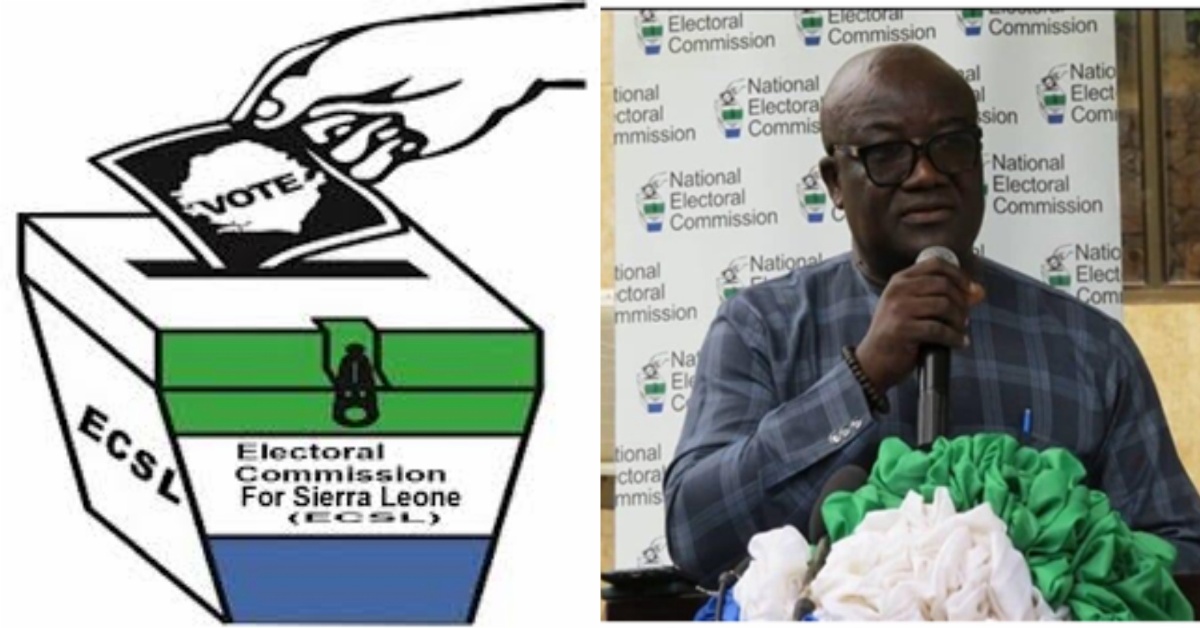As Sierra Leone gears up for the highly anticipated 2023 elections, it is essential to understand the step-by-step process through which the results will be counted, collated, and ultimately announced.
With 3,374,258 registered voters, marking an increase of 195,595 from 2018, the democratic process is set to unfold with fervor.
Here is a step-by-step process through which the results will be counted, collated, and ultimately announced;
• The process of vote counting in Sierra Leone involves both physical and electronic methods. At polling stations, votes are manually counted by election officials. Additionally, at the district and regional tallying centers, overseen by the Electoral Commission for Sierra Leone (ECSL) who’s responsible for managing the country’s national elections
• At polling stations across the nation, the physical counting of votes takes place, following a meticulous five-stage process. The ballot papers undergo screening, reunification, reconciliation, sorting, and finally, counting. Once the counting is complete, the presiding officer at each polling station publicly announces the results for agents and observers to record.
• To ensure accuracy and efficiency, the outcomes are then recorded in a reconciliation and result form (RRF). These provisional results from all polling stations are subsequently transmitted to the respective district tallying centers, where electronic tallying occurs. Each region, led by a regional commissioner, announces the provisional results via traditional media, providing a glimpse into the evolving electoral landscape.
• As the anticipation reaches its peak, the provisional results are further consolidated at the National Tallying Center (NTC). It is within this central hub that the final tallying takes place, paving the way for the announcement of the official results.
• The responsibility of declaring the final results rests with the chief electoral commissioner, who, in a momentous occasion, will address the nation via traditional mass media platforms.
In the quest for victory in the presidential race, a candidate must secure a minimum of 55 percent of the total votes cast. Should this threshold not be achieved during the first round of voting, a run-off election will be held. This process, familiar from the 2018 election, will involve the two candidates with the highest number of votes competing head-to-head for the ultimate victory.

 7 Comments
7 Comments









Thank you Mr Konneh for this clear and concise presentation of the process. Am sure APC can never be satisfied with this because they know that whatever they do, it is too late for them to put their house in order and that is why they are clamouring for postponement of the election as if their god-father is the sponsorer of the elction. Fools.
😆😆😆😆😆😆
Thanks Mr. Konneh for such a comprehensive analyses. Please employ patriotism in handling our beloved country’s fate election.
Entertain righteousness to globally polish your hard won integrity. Put salone fos by heeding the reasonable concerns of the masses for a positive solution.
Thank you Mr. Konneh Chief Electoral Commissioner and Returning Office for well explained counting procedure /process. Such has never happened in this country but because of your transparency, accountability and efficiency that’s why you have done such. Job well done. The APC never done such you have done
This sounds convincing, we only hope bad politicians will not take us aback with the motive of derailing the process, as well, undermining the democratic process this far. Great work Mr Konneh ant the ECSL team 2023.
This is where the problem is. Electronic tallying. All these past elections we have being using Excell and now they want to use SQL database software to execute the final tallying. Was any test done to see if the result will not be skewed. I guess not. Please realize that a simple code can be added to the program whereby results can be skewed for just one party to win. Who came up with this Sql software when all along we have being using the Excell spreadsheet which is easy to add up. Something fishy going on
This is not all we want to hear what we know is mohamed kinney must re-sign . What all of u have plan will fail u . The election must be conducted by independent international body